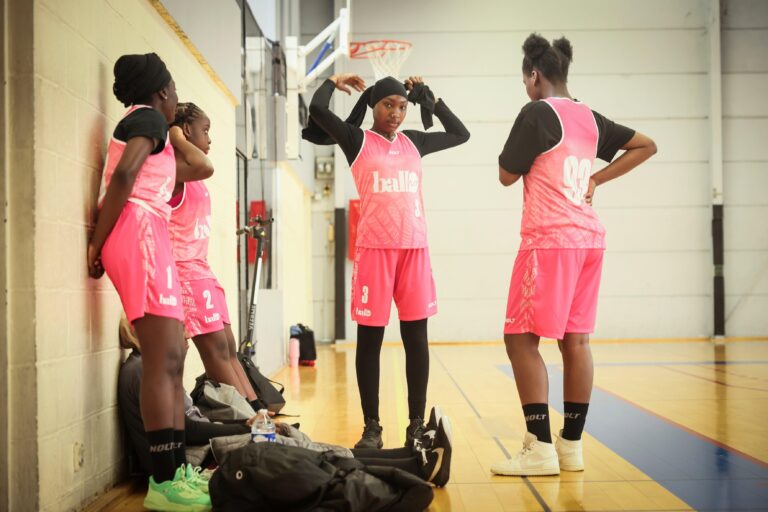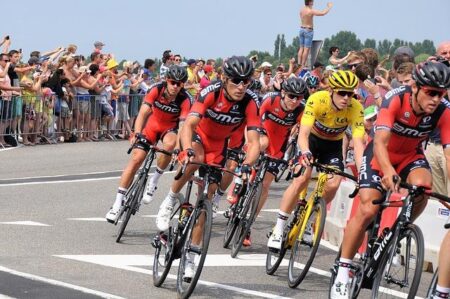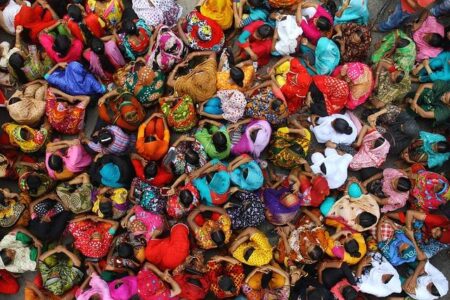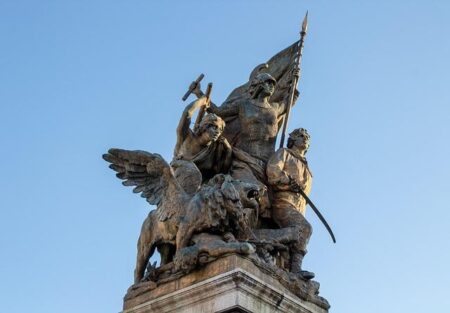France’s recent proposal to ban religious attire in sports has ignited a heated national debate, drawing sharp reactions from athletes, religious communities, and human rights advocates. The measure, aimed at reinforcing secularism and neutrality in public sporting events, raises complex questions about freedom of expression, religious identity, and inclusion in athletics. As the government moves forward with this controversial legislation, stakeholders across the country are weighing the implications for both the sporting world and broader societal values. This article explores the key elements of France’s proposed ban and the varied responses it has provoked.
France’s Proposed Ban on Religious Attire in Sports Faces Backlash from Rights Groups
The proposed legislation by the French government aims to prohibit the wearing of religious symbols and attire during sports activities, citing concerns over secularism and uniformity in public spaces. However, this move has ignited significant criticism from various human rights organizations and advocacy groups, who argue that it infringes on fundamental freedoms of religious expression and personal identity. Critics highlight that such restrictions disproportionately affect Muslim athletes, particularly those who wear the hijab, raising fears of increased marginalization and discrimination within the sporting community.
In response to the proposal, rights groups have outlined several key points of contention:
- The ban may violate the principle of religious freedom protected under both French law and international human rights agreements.
- It risks undermining efforts to promote inclusivity and diversity in sports arenas.
- Enforcement could lead to unequal treatment of athletes from different religious backgrounds.
| Stakeholder | Main Concern | Suggested Alternatives |
|---|---|---|
| Human Rights Groups | Religious discrimination | Dialogue and inclusion programs |
| Sports Federations | Maintaining neutrality | Clear dress codes respecting cultural attire |
| Government | Secularism enforcement | Strict but fair application of existing laws |
Debate Over Secularism and Inclusion Intensifies in French Sporting Communities
The ongoing debate around France’s proposed legislation to ban religious attire in sporting events has sparked intense discussions within various sporting communities across the country. Advocates argue the move is essential to uphold the principle of laïcité — France’s strict form of secularism — which they say ensures a neutral, inclusive environment free from religious influence. Yet, critics claim the measure disproportionately targets minority groups, particularly Muslim women who wear the hijab, and undermines efforts to promote diversity and inclusivity in sports.
Key points raised by opponents include:
- Restricted freedom of expression and religious rights
- Potential exclusion of talented athletes from marginalized communities
- Contradiction of international sports bodies’ guidelines promoting inclusion
Meanwhile, supporters highlight the need for neutrality in public institutions. The tension has ignited calls for dialogue on how to balance secular values with the multicultural reality of modern France, signaling an ongoing struggle to define the future of French sports in a pluralistic society.
| Stakeholder | Position | Key Argument |
|---|---|---|
| Government Officials | Support | Maintaining secular neutrality in sports |
| Minority Athletes | Oppose | Protection of religious freedom and inclusion |
| Sports Federations | Mixed | Balancing regulation with diversity |
| Human Rights Groups | Oppose | Risk of discrimination and exclusion |
Experts Warn of Potential Discrimination and Social Division
Several voices from the academic and civil rights communities have expressed concern that the proposed legislation could unintentionally foster discrimination against athletes who wear religious attire. They warn that banning items such as hijabs, turbans, and kippahs during sports events may marginalize entire groups, contradicting France’s commitments to equality and freedom of expression.
Critics argue the bill risks deepening social divisions by alienating minority communities and complicating efforts towards integration. Some experts highlight that instead of promoting unity, such restrictions could exacerbate tensions, particularly among young people for whom sports serve as a critical avenue for social bonding and cultural exchange.
- Potential for exclusion: Targeting religious symbols might discourage participation.
- Conflict with constitutional rights: Raises legal debates about freedom of religion.
- Risk of stigmatization: Could single out specific ethnic or religious groups unfairly.
| Concern | Potential Impact |
|---|---|
| Social Fragmentation | Reduced community cohesion in youth sports |
| Legal Challenges | Possible court cases on religious freedom |
| Public Backlash | Protests and reputational risk for authorities |
Calls for Clear Guidelines and Inclusive Policies in Athletic Dress Codes
Amid growing tensions surrounding the proposed regulations, advocacy groups and sports organizations emphasize the urgent need for clear and inclusive guidelines that respect athletes’ cultural and religious identities. The absence of comprehensive policies risks marginalizing minority groups and undermines the principles of diversity and equality in competitive sports. Stakeholders argue that any dress code must prioritize athletes’ rights while maintaining fairness and safety on the field.
Experts suggest that effective policies should incorporate:
- Consultation with religious and cultural communities to foster mutual understanding.
- Flexibility in dress codes to accommodate various forms of religious attire without compromising performance.
- Clear criteria ensuring safety and uniformity in athletic competitions.
| Policy Aspect | Key Considerations |
|---|---|
| Inclusivity | Respect for diverse religious practices |
| Performance | Ensuring attire does not inhibit athletic activity |
| Safety | Minimizing risk of injury or obstruction |
| Enforcement | Consistency and transparency in rule application |
Insights and Conclusions
As France’s proposed ban on religious attire in sports continues to ignite debate, the nation finds itself at the crossroads of secularism, religious freedom, and athletic inclusion. With strong opinions voiced from various communities, legal experts, and sporting bodies, the issue underscores broader questions about identity and rights in contemporary French society. As the government moves forward with legislative considerations, the world watches closely to see how France will balance its secular values with the need for diversity and respect in the sporting arena.




